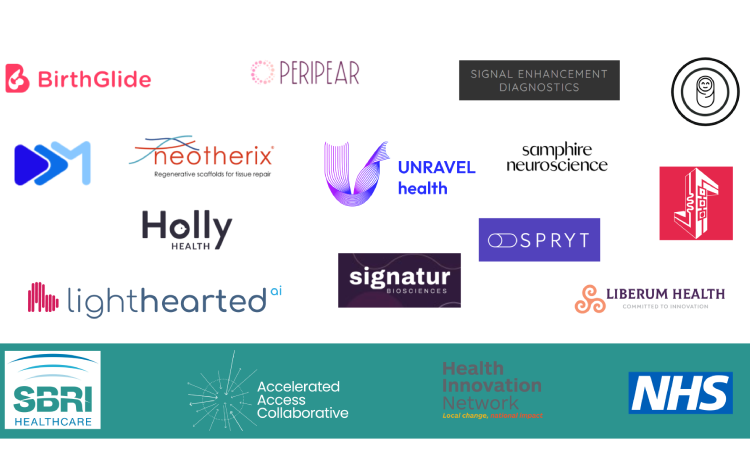Potential of new tech will be harnessed as part of £1.8bn NHS cash boost
- 5 August 2019

The government has pledged a £1.8 billion cash injection for the NHS with part of the money going towards harnessing the potential of new technologies such as genomics, though experts have warned this is not enough.
Downing Street announced the funding for more beds, equipment and additional wards last night, with a list of 20 hospital projects to benefit from a £850 million funding package to upgrade outdated facilities and equipment.
Prime Minister Boris Johnson also confirmed a £1 billion boost to NHS capital spending to tackle urgent infrastructure projects, taking the total up to £1.8 billion.
Chancellor Sajid Javid said: “This £1.8 billion for frontline services will not just go towards better equipment and technology, but important upgrades of hospitals across the country.”
However it is not clear how much of the funding will be spent on digital.
In a piece for The Sun on Sunday, health secretary Matt Hancock, suggested the funding would be used to “harness” the potential new technologies like genomics.
“I want to see everyone get the best care in the world in the NHS, with the best modern treatments and technology, and the right number of properly rewarded staff,” he wrote.
Two digital programmes were included in the list of funding commitments:
- South Yorkshire and Bassetlaw Integrated Care System – £57.5 million for primary Care investment across South Yorkshire and Bassetlaw
- Leeds Teaching Hospitals NHS Trust – £12 million to provide a single Laboratory Information Management System across West Yorkshire and Harrogate, covering all pathology disciplines
The funding is in addition to the long-term spending increase announced last year worth £20.5billion by the end of 2023 – an average increase of 3.4% each year.
NHS chief executive Simon Stevens said: “This is a significant start to the much needed capital investment so that our nurses, doctors and other NHS staff will be able to care for their patients in modern facilities with state of the art equipment.
“The concrete steps being set out this week will mean investment flows directly to frontline services, providing new clinics and wards. As they come online, as part of our NHS Long Term Plan, patients will benefit from reduced waits for treatment and wider upgrades to the quality of care the health service is able to offer.”
Shadow health secretary Jonathon Ashworth said the announcement fell “significantly short” of what’s needed.
“Tory ministers have cut over £4 billion from NHS investment budgets with continued smash and grab raids, resulting in crumbling hospitals, faulty equipment, sub-standard mental health facilities and the cancellation of cancer diagnosis appointments,” he said.
Health experts have welcomed the funding, but said more is needed to address the “woefully inadequate” spend on digital technology in the NHS.
Richard Murray, chief executive of the King’s Fund, added: “A significant amount of work is needed to bring NHS buildings and equipment up to scratch after years of capital budgets being raided to cover day-to-day running costs.
“The new funding announced today is a welcome first step, but a longer term investment programme is needed to tackle the £6bn NHS maintenance backlog, upgrade GP surgeries that are no longer fit-for-purpose, and modernise the NHS so it can take advantage of new technology.”
While Ben Gershlick, senior economist at the Health Foundation, said the process through which the 20 hospital projects were selected was “opaque” and will only “scratch the surface” of underinvestment in digital.
“Decisions about what upgrades to prioritise need to be informed by a clear and transparent assessment of where improvements are most urgently needed to benefit patient care,” he said.
“Given the scale of underinvestment in NHS buildings, equipment and technology in recent years, this level of funding will only scratch the surface and will not close the gap in health care capital spending between England and comparable countries.
“Even after this additional money, there remains a major risk to the quality of patient care posed by deteriorating facilities, out of date infrastructure and a shortage of equipment.
“Any new funding for buildings, equipment and technology will help, but allocating money late in the year and changing budgets multiple times is not an effective way to plan investment.”
Danny Mortimer, deputy chief executive of the NHS Confederation and chief executive of NHS Employers, added: “This money is desperately needed to modernise services and working environments and improve the quality and efficiency of patient care.
“Spending on NHS buildings, equipment and digital technology is half the OECD [Organisation for Economic Co-operation and Development] average and woefully inadequate. There is a huge logjam of cases for investment in the NHS and there are many old buildings that cannot be adapted to deliver modern patient care.”




